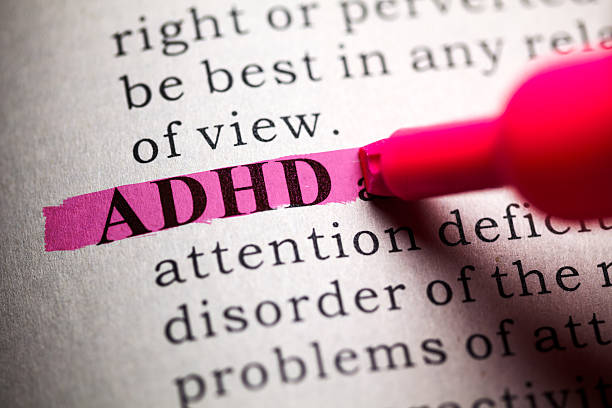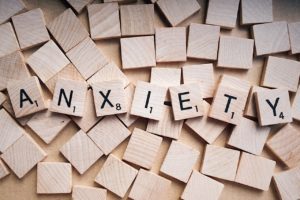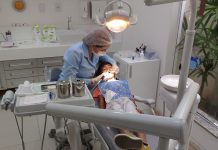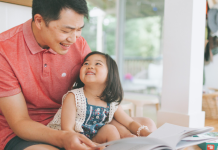
I was at my son’s end-of-the-year kindergarten parent-teacher conference. “I think it would be wise to pursue testing for ADHD.” These were the words the teacher had just spoken. Really? I had heard words like that before. While in preschool, a speech therapist had told me that even though my son passed his screening, it seemed like something wasn’t quite right. After changing pediatricians (the first told me, “He’s just a boy.”) and researching furiously, we discovered he had Sensory Processing Disorder (SPD).
We spent a couple of years in occupational therapy learning how to help him cope with sensory issues. Imagine having “Spider-Man hearing” in a classroom of sounds and children. That sums up what life was like for him at school. No wonder he could not focus! However, I agreed that something still did not seem right. He was so focused on some things but had a hard time with simple tasks. He was brilliant, creative, and so good with complex puzzles. However, he had a hard time following simple directions. He was nowhere close to being hyperactive. How could he have Attention Deficit Hyperactivity Disorder (ADHD)?
Our First Experience with Medicine
We had already exhausted all other options. Supplements, diets, classroom techniques . . . so we went back to the pediatrician and she did an assessment. He scored high on the testing for ADHD. We decided it was time to try medicine and were given a prescription that is widely used in treating ADHD. It worked but had side effects that concerned us. We decided we would go back to what we were doing before and pray it got better. He had a fantastic first grade teacher who loved him well, and he excelled for the most part.
Then second grade came. It did not go as well. Again, he had a wonderful teacher who love him and worked with us, but it was now a larger load of work. He could not get everything completed at school so he had to do it at home on top of homework. What had been some mild focus issues became a full-blown nightmare of meltdowns and anxiety for both him and me. We were at a loss. Thankfully, we were given the name of a child psychiatrist by several people we knew.
Child Psychiatrists and Counseling
We did another assessment with the psychiatrist and found that the medicine we had initially tried should not have been used for him. Psychiatrists are trained in medicines used for the brain and he knew immediately after seeing my son that he would not be able to tolerate stimulants. Stimulants? That was what we had tried the first time — a stimulant. So we agreed hesitantly to try a new medicine. It worked with no side effects! However, now that his focus was under control, we found that he also had extreme anxiety. We started a therapy called play therapy. We found out ADHD can be very complicated.
My Interview with Jennifer Ervin, MSW, LiCSW, PIP
I thought I knew about ADHD. I had taught school, after all, but I found I did not know as much as I thought. In fact, I found myself relearning and sifting through information to find out what was true and what was false. There are many myths believed about ADHD.
It’s been 10 years since that initial diagnosis for my son. We now have two more children who have been diagnosed as well. ADHD looks different in each of them and I am still learning new ways to meet their needs.
I reached out to Jennifer Ervin of Restore Ministries to answer a few questions to help others, like myself, better understand ADHD. Jennifer has a Masters in Clinical Social Work from the University of Alabama. She has 16 years of experience in a variety of clinical and agency settings. Jennifer is also the director of Camp Empower, a week-long therapeutic camp helping children with attachment issues, learning differences, behavioral issues, and anxiety/depression.
Are there different types of ADHD?
ADHD now has three typical types but, actually, I’ve heard there can be up to nine types. The three you typically hear about are: predominantly inattentive ADHD, predominantly hyperactive-impulsive ADHD and a combination ADHD with inattention and hyperactivity. Typically ADHD can be diagnosed by a pediatrician who will ask for parents and a teacher to fill out inventories regarding the child’s behaviors. If the child scores highly on these inventories then they can be assessed to have ADHD.
How is it best treated?
ADHD is best treated with a combination of medicine and behavioral therapy. Therapy helps teach children to self-regulate (to calm themselves by themselves) instead of relying on others to calm them — if not, they usually will get in trouble. The medicine typically used is a stimulant, but some kids are sensitive and non-stimulant meds are needed to help them.
How can counseling be beneficial as part of the treatment?
It is helpful to build a relationship with an adult who understands how their brain works and can help them learn to self regulate. In counseling, we teach them: practical skills they can use to calm themselves when it’s hard to sit in class, to pay attention to how their bodies feel when they are on high or, as we say, “the red zone,” and we help teach both parents and children effective ways to deal with certain behaviors that can be a struggle. It’s important to work with not only the child but the parents, so that everyone is aware and on board using the same language.

Can ADHD cause anxiety, depression?
What parents think is ADHD can actually be anxiety. Because a child is anxious, they struggle with behavioral issues and inattention. It’s important to discover if it is indeed anxiety because a stimulant medicine for an anxious child will make the anxiety worse. It takes times and patience to sit with a child and hear their worries and fears — not dismiss and tell them to just get over it.
Depression can also be seen with children/teens with ADHD if they are struggling with friends or school. It can feel harder to get things done or take twice the amount of time to complete tasks. Over time this can lead to depression or anxiety.
Our Journey Leading up to Today . . . and a Pandemic
We have walked the road of ADHD and anxiety for many years now. We’ve used medicines and therapy at times and at other times, not needed them. What we have found is that no matter what part of the journey we find ourselves on, ADHD does not define our children. ADHD is not the identity of our children.
It is important to remind ourselves as parents and remind our children that they are more than their struggle! They are fearfully and wonderfully made — not in spite of ADHD but because of the ADHD. My oldest will tell you today that he would not want to be rid of his ADHD because it is what makes him who he is — brilliant and creative beyond words. He loves music and can play by ear, he can sculpt, write screenplays, make movies, and create board games. Everything he enjoys is highly linked to his creativity and how his brain is wired.
However, the struggles that come with ADHD, such as a lack of focus, poor planning, and organizational skills, are something that our children may struggle with intensely at times. I have learned to advocate for my children by educating myself and others along the way. We’ve changed schools when needed to find one that will challenge them but also graciously support their needs. Some schools, such as ours, have calming/sensory rooms for elementary students to go to when they are having a hard time. Seek out a school, if possible, where teachers and staff are devoted to doing all they can to help students who learn differently and need accommodations. It has been life giving to watch our kids succeed and gain confidence in this type of environment.
Keep in mind also that ADHD does not disappear, but it may look different as your child grows older. As I’m writing this, we are in the middle of a pandemic. Nine months ago my kids were excelling, but then the bottom fell out. Our old friend ADHD made a reappearance as the stress of this hard season proved to be too much. I asked Jennifer about ADHD and the current pandemic.
During the pandemic are you finding that children and teens are having more issues with mental health? How can we as parents come alongside our kids at this time?
The amount of referrals for children/teens has doubled during the pandemic. There is a loss of a social connection, regular routine, and overall stress in their homes. As parents, please take note when your children are isolating themselves more — when they are quicker to show emotion, both anger and tears, when everything you ask seems to be overwhelming to them, loss of happiness, and behavioral changes.
We have to take time to connect with our kids. This is not an hour of conversation, but 5 minutes of time. Our kids need us to push pause and ask them deeper questions — what was the most difficult thing in your week? If you could go anywhere, where would you go and why? Which one of your friends would I like the best and why? What can I do to make you feel loved and special? When you are having a hard day, what’s one thing that makes you feel loved and seen?
So how can parents take care of themselves during this time and find encouragement while caring for children with ADHD? Any resources you recommend?
The best thing to remember is you are not alone! Reach out to other moms — be willing to be vulnerable and share. You will be amazed at how many other parents are out there struggling with the same thing you are. Our enemy is often feeling like no one understands — which isn’t true. Surround yourself with people who can offer you hope and a safe place to vent. It’s also helpful if parents also meet with their child’s therapist without the child — it gives them a space to be heard and they are given practical ways to help them at home. Make sure you are doing what helps you to decompress — exercise, going out with friends, engaging with others, your own therapy!
The journey of ADHD can be hard and difficult at times, but there is great beauty to behold even as you climb what seems to be a never-ending mountain. Celebrate those moments! When you come to the end of a difficult part, take time to remember how far you’ve come. Embrace the victories knowing that even though the journey may not be over, you can go forward with confidence knowing you are not alone! Many moms are on the very same journey and are happy to walk alongside cheering you on.











